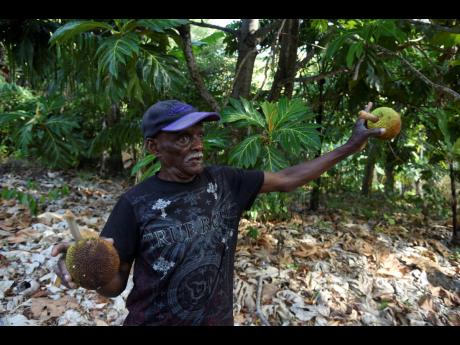Fulton calls for radical steps to tackle climate change
The fact that July 2023 was the planet’s hottest since records began – likely the hottest in 120,000 years – has not been lost on Lenworth Fulton, president of the Jamaica Agricultural Society (JAS).
Concerned that Jamaica’s antiquated farming infrastructure and practices did not anticipate the effects of climate change, Fulton warned that the sector must modernise with a sense of urgency to survive and remain competitive.
“We are experiencing the hottest summer months on record worldwide and Jamaica is not prepared for it. Our farm infrastructure, in many cases, could be used in temperate countries and need urgent modifications. Poultry houses are constructed with zinc roofing, pig pens are made with metal tops and concrete sides and floors. These are perfect conductors for the transfer of heat to the occupants – poultry, pigs, and ruminants,” Fulton told The Gleaner.
He added that while metal roofs are excellent catchment for collecting rain water, most farmers do not exploit rainwater harvesting in any significant way.
“This is an area that Government could incentivise through subsidies to farmers who build ponds and other types of storage. New engineering designs are paramount to render some protection to farm animals as well as employees attached to these entities,” he said.
“New designs are a function of research, which, in most instances requires government, private sector, and research organisations to work together to find solutions,” the JAS president urged.
Given the projection that each year will be warmer from here on, it is critical that policymakers explore the best global practices for all future construction, while at the same time looking at how to retrofit existing ones, according to Fulton.
In the effort to optimise productivity, all irrigated lands served by the National Irrigation Commission must be fully utilised to bolster food security, given that food prices are on the increase.
INNOVATIVE FOOD-PRODUCTION SYSTEM
For this reason, he wants to see protected agriculture move beyond a concept and be mainstreamed as an innovative food-production system within the Ministry of Agriculture, Fisheries and Mining, with a unit established specifically to drive this initiative. And it should be sufficiently equipped and manned with the qualified personnel to promote hydroponics, aquaponics, precision nutrition, plastic matching, grass mulching, and greenhouse technology, as well as new and emerging technology.
“Protected agricultural food systems are used worldwide to maintain productivity under adverse weather and climatic conditions, and Jamaica needs these types of interventions now. These conditions also have an adverse effect on livestock, with ruminants especially affected – cattle, goats, and sheep. Therefore, more attention will have to be placed on zero grazing, which is to take the grass and water to the animals in a confined space where shade can be provided, especially if the pastures don’t have enough shade trees.
“This unbearable heat affects the ruminants’ ability to efficiently convert feed into milk or meat in the same way that crops are affected by wilting, poor fruit set, and poor quality produce. These conditions cause significant losses to both crop and livestock farmers and create shortages and push prices out of bound. Government, private sector, farmers, schools and colleagues, and the financial sector must act in unison to avert a major crisis by educating the public and provide much-needed resources for them to make rational choices to tackle climate change.”


